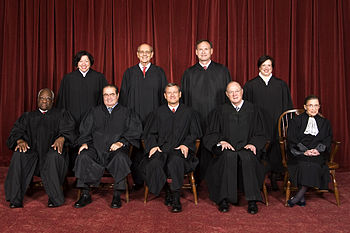Jennifer Snook
@sirjid
When I was 11, I assumed everyone was like me.
I assumed that everyone secretly wanted to be a girl.
I assumed that all the boys I went to school with looked on in envy, and we were all silent by some great unspoken pact.
I assumed that when people imagined themselves in the future, they imagined themselves in an unattainable form- that their greatest dream was cooking and working and doing laundry in a body they could never have.
When I was 15, I assumed that everyone was like me.
I assumed that any display of happiness was a facade.
I assumed that underneath casual appearances every move was calculated, either to make people hate them or make people love them.
I assumed that everyone had the same internal struggle of wanting to get as much love and support as possible while also wanting to push people away so that no one would care if one day they were gone.
When I was 18, I assumed everyone was like me.
I assumed that everyone had a plan to kill themselves.
I assumed that everyone had fantasized about what the world would be like when they died, about how their friends and family would react.
I assumed that, at some point, everyone had stood on the roof and looked down in contemplation; had a bungee cord and a plastic bag stashed under their pillow; had held a knife to their chest and wondered just how much willpower it took to press a little harder.
Obviously, I was wrong. These things I assumed range from uncommon to rare among my peers, and even less common in the wider world. But I didn’t know that.
People assumed that I was like them, too. They assumed that I wanted what was best for myself and those close to me. They assumed that I wanted to be happy. They assumed that I wanted to live and enjoy living.
For the most part, those assumptions were right.
The problem comes from the ones that were not.
People assumed that I was male. People assumed that I acted how I did because that was just how I was. People assumed that I was capable of being happy.
That was their experience. They had no method of determining that mine was different. They had confirmation that theirs was correct because everyone seemed to conform.
When they were sad, they could play a game or eat ice cream, or talk with friends and become happy.
If someone couldn’t do that, well, then they obviously either weren’t trying hard enough or weren’t actually sad to begin with.
But I wasn’t sad. I was depressed.
There’s some confusion because of how interchangeable the words are in everyday speech, but there is a distinct difference.
Depression isn’t just being very sad. It’s the absence of emotion. No happiness, no sadness. No hope. No dreams. No desires.
It’s when you can’t picture your future because you can’t imagine being alive in five years.
Depression is, thankfully, unimaginable by most people. But that causes problems.
People think that the solution that made them happy will cure my depression. They think that I can will myself into happiness. They think that I don’t try because I’m lazy.
And because I don’t have any way to know that they don’t feel the same things I do, I assume that they’re right.
The disconnect between what people tell me is real and what I experience means that I cannot always distinguish reality from what I have been told should be reality.
When I have anxiety attacks, they produce physical symptoms. The largest is the loss of balance, which can cause me to fall or sway wildly, but there’s also manic pacing, constant fidgeting of fingers, arms, and legs, rapidly looking between different things with no pattern or reason, and verbal tics, including a much quieter voice, a stutter, or the inability to speak at all.
Not every attack triggers all of these symptoms, not all trigger them to the same degree or with the same intensity. When it happens, I cannot be sure what, exactly, will happen.
So I cannot be sure that any of it is happening.
With very few exceptions, I do not see this happen to other people. This is something people are surprised and repulsed by.
So how can I rationalize both of these things, one of which has been drilled into me as truth since I could understand what words meant, and one which my senses tell me are actually happening?
Simple. I’m lying. And I’m lying so well, I’ve got myself convinced. Every twitch, every stumble, every paranoid glance and mangled word is calculated, intentional and malicious.
Panic attacks aren’t just bad on their own. The few minutes, or longer, of being unable to pull reality from the all-encompassing blanket of numb terror is bad enough, but afterwards, I always, always wonder if I just made up the whole thing. I wonder if I exaggerated or embellished or flat-out concocted everything that happened.
Why? For attention, maybe. To get out of responsibilities. Because I’m bored.
Because people don’t do that.
If everyone is like me, that means that they get the same urges and can overcome them. That means that I’m weak.
My perception of other people tinted by my own outlook affected how I saw people for years. It still does.
I resented people who seemed happy or content, because either they were lying, or they had figured out some secret denied to me.
When people said that you could overcome depression by deciding to be happy, or that anyone who couldn’t find motivation was useless, they knew what they were talking about because they had the same experiences that I did.
The thing is, they weren’t wrong. For some people, it is that easy — which still boggles my mind. But for me, when apathy was all I knew and even thinking of trying took more energy than I had in an average day, it made me feel like an utter failure.
Everyone does this to some extent, whether it’s as simple as assuming they’ve seen “Star Wars,” or as potentially dangerous as assuming that their brain chemistry works the same way yours does.
It’s taken me a long time to realize that people’s minds work in fundamentally different ways, and longer to realize just how important that is.
But even as important as it is to understand that no two people are alike, that there is almost nothing that can be considered common among all of humanity besides needing oxygen and food, there is still one unshakeable fact.
Today, I assume that everyone is like me.
You’re never alone.
National suicide hotline: 1-800-273-8255
National crisis text line: 741741
Trevor Project crisis lifeline for LGBTQ youth: 886-488-7386



